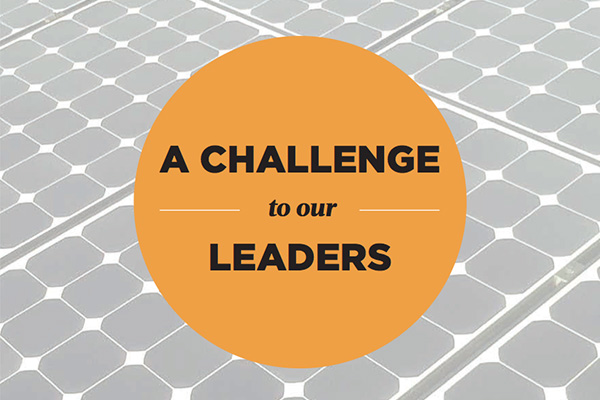Generation Zero report call to policy makers
Government inaction "risks major economic disruption"
The report comes quickly after a March 2014 American Association for the Advancement of Science (AAAS) paper and the Intergovernmental Panel on Climate Change’s (IPCC) Fifth Assessment Report, both of which confirm to a degree of near-certainty that “human influence has been the dominant cause of the observed warming since the mid-20th Century.” In scientific terms, this degree of certainty is akin to the certainty of smoking leading to cancer, making it considerably more potent than a possible theory. Generation Zero are quick to explain that a two degrees Celsius rise in temperature is the maximum amount the planet can handle, and also make a distinction important for understanding why they consider a Clean Energy Plan fundamental to a safe future; “it doesn’t really matter when a tonne of carbon is released – only whether it is released.”
Generation Zero also covers why investing in clean energy (importantly defined as transport and industry as well as electricity) makes economic sense, dismissing the idea that the free market will effectively direct the transition from fossil fuel dependency. The report argues that waiting until this happens will “risk major economic disruption,” an idea that has been the subject of various present-versus-future cost trajectories within the climate science world. Generation Zero explains that it is important to act before the options run out and before the cost of transition rises astronomically. Switching to clean energy also makes real economic sense in terms of building the infrastructure for a forward-thinking industry and job creation.
Building on the rhetoric of the 100 per cent Possible campaign that was launched in 2012, this report makes a case study of Denmark’s clean energy transition to show that with the proper political will, it is achievable to institute the changes required to move beyond fossil fuels. Following this, it presents an impressive number of facts, figures, and aesthetically pleasing graphs. It explains that New Zealand, while doing well in some respects (renewable electricity, for example), fundamentally has its “foot on the wrong pedal.” Alec Dawson argues that “at the moment, we have an ineffective carbon price and our transport spending is locking us into fossil-fuel heavy transport in the future.”
The final section of the report is a call to policymakers. What makes Generation Zero impressive is its commitment to pushing for good climate policies irrespective of where issues may be politically charged. As New Zealand catapults towards the election, a youth-led organisation with a vested interest in clean energy and the capacity to analyse various policies exclusive of party origins is very welcome. This report does well to explain that a climate-safe future is not a political hoax, but something that must be secured if NZ is to continue as a prosperous country.






